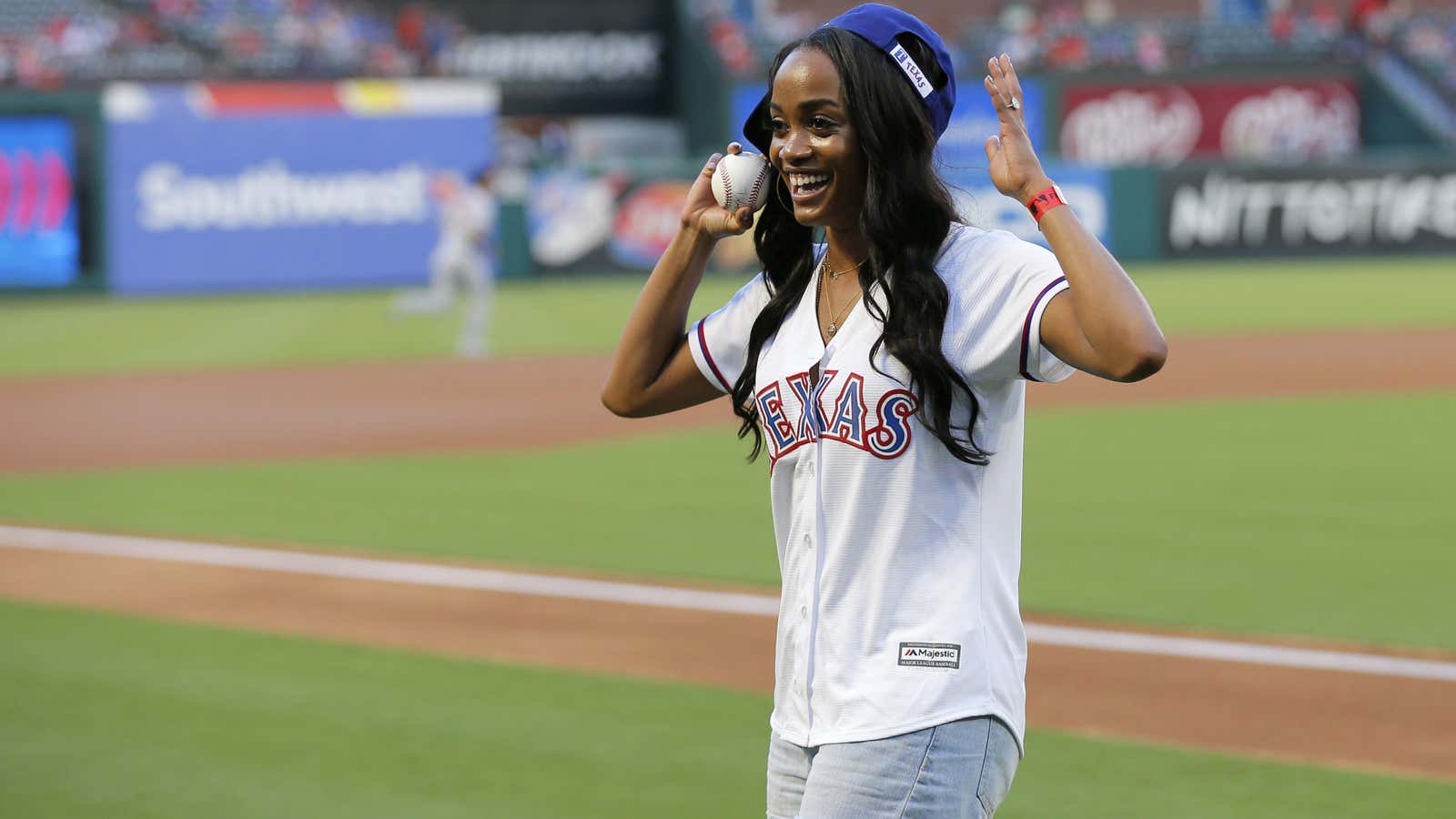Expectations were high last February after the announcement that ABC’s The Bachelorette had finally cast a black lead. Though the move was certainly overdue, 15 years into the franchise’s history—and some were skeptical of the show’s framing of this as a “historic” moment—31-year-old Rachel Lindsay, a popular former contestant, was widely seen as an inspired choice.
But the series saw a dip in viewership during Lindsay’s season, which Mike Fleiss, the creator, producer and writer of cult-franchise, has attributed to viewers being turned off by Lindsay’s race. “I found it incredibly disturbing in a Trumpish kind of way,” Fleiss told the New York Times (paywall) recently.“How else are you going to explain the fact that she’s down in the ratings, when—black or white—she was an unbelievable bachelorette? It revealed something about our fans.”
What it revealed to Fleiss wasn’t news to most of us: The hit reality show, and its companion franchise, The Bachelor, are made for white viewers, and have for a decade and a half framed love as something available only to white people who fit a particular (and regressively gendered) image and storyline.
It’s notable that it wasn’t the fraught racial dynamics of the Lindsay’s season itself that gave Fleiss pause. The season premiere didn’t bode well: One white male contestant approached Lindsay and told her he was ready to “go black” and “never go back.” In another episode, a contestant rapped that Lindsay was “a girl from the hood” (she is an attorney, the daughter of a federal judge, who grew up in a Dallas suburb). As the season progressed, the show’s main provocateur turned out to be a racist (previous tweets showed he was a Trump supporter who equated Black Lives Matter with “terrorism”). The contestant spent the season goading black male contestants, insisting they were aggressive, and even lied about one being violent towards him.
This could all have been an opportunity for a meaningful discussion of race. But the show didn’t take that opportunity—instead editing the season to present the racist antagonizing and the angry responses to it as a fight of moral equivalence.
The issue of race predates Lindsay’s season. A 2016 analysis found that most (59%) of black contestants in both The Bachelor and The Bachelorette left the shows within two weeks (seasons of both shows typically last 10 weeks). In fact, the show’s uncomfortable use of racism as entertainment led some critics to suggest that producers and writers are not just aware of its “Trumpish” fans—but playing to them.
Fleiss says he isn’t discouraged from casting another person of color as the lead (“I think it’s important,” he rather self-righteously told the New York Times). But if this is what passes for addressing racism, some critics have said, he might as well not bother.
